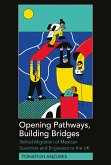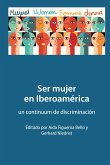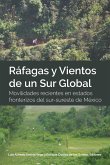Opening Pathways, Building Bridges explores contemporary skilled migration and the brain drain using a bottom-up approach, based on a case study of Mexican scientists and engineers-or the Brains, as coined by the author-working in the UK. It provides an insight into how the phenomenon is shaped by the migrants' personal and professional experiences (from Mexico to the UK: 'opening pathways') and how their contributions could have valuable effects through diaspora policies (from the UK back to Mexico: 'building bridges').
The research is based on an analysis of 36 semi-structured, qualitative interviews with Mexicans graduated in STEM fields, who currently work in academia or the private sector in the UK, and the empirical findings are organised into three main topics: transnationalism, professional experience and collaboration at a distance. It is argued that a more balanced exchange between Mexico and the UK can be achieved by building more bridges with the diaspora through long-distance collaborative initiatives. For this to happen, it is important for policy-makers to understand the relevance of skilled individuals' choices and experiences, the value of their networks and communities of interest, the existing imbalances between developed and developing countries, and the challenges posed by scientific and professional collaborative projects.
This book offers some ideas and policy recommendations arising from the research, in order to better understand-and face-the challenges of skilled migration in future years and, ultimately, mitigate the negative effects of the Brains' departure.
The research is based on an analysis of 36 semi-structured, qualitative interviews with Mexicans graduated in STEM fields, who currently work in academia or the private sector in the UK, and the empirical findings are organised into three main topics: transnationalism, professional experience and collaboration at a distance. It is argued that a more balanced exchange between Mexico and the UK can be achieved by building more bridges with the diaspora through long-distance collaborative initiatives. For this to happen, it is important for policy-makers to understand the relevance of skilled individuals' choices and experiences, the value of their networks and communities of interest, the existing imbalances between developed and developing countries, and the challenges posed by scientific and professional collaborative projects.
This book offers some ideas and policy recommendations arising from the research, in order to better understand-and face-the challenges of skilled migration in future years and, ultimately, mitigate the negative effects of the Brains' departure.








